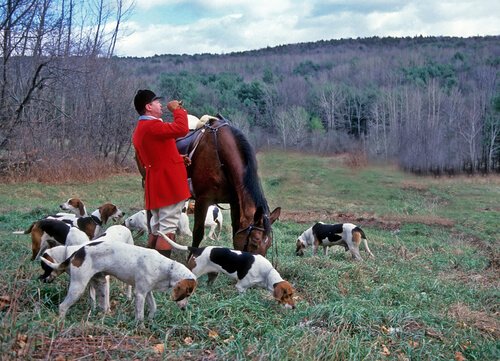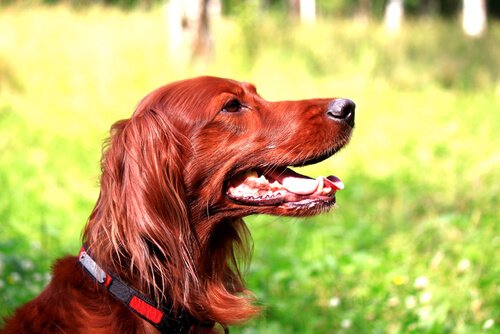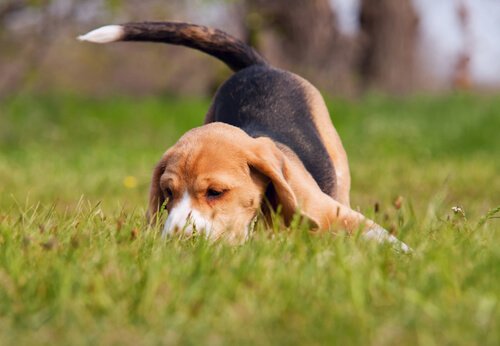Is Your Dog a Good Hunter?

Have you noticed your dog being very focused on the movements of birds and insects when you’re outside? If so, this means your dog has inherited instinctive behaviors — such as herding or hunting — from their wild ancestors. In order to help you figure out if your dog is a good hunter, you can read this article that provides information on how you can bring the hunter out of your dog.
What is instinct?
Instinct is an innate impulse that all living creatures have in order to survive. Thanks to instinct, everyone knows how in all sorts of situations natures throws at us. A living being without it, is completely vulnerable, even in its own habitat.
Therefore, innate impulse or instinct is sort of like “pure energy.” This strength is circular: it’s the cause and the effect of all an animal’s actions. Every instinctive behavior is an expression of it, from the beginning to the end.
Some instinctive behaviors start out as adaptations and are genetically passed on to future generations for the survival needs of a specific environment. For example, a hunting instinct was necessary for wolves and wild dogs to eat.

Even puppies of certain breeds can show a natural tendency for certain behaviors without having ever been trained to do them. Some border collies start herding on their own at the age of 2 or 3 months.
Dogs and their hunting instinct
Historically, man and dog have hunted together by using their combined skills in order to get the best results. By themselves, dogs and men were strong but vulnerable. Together, they had rationality, instinct, and loyalty help them protect their own. It was a relationship destined for success.
Almost all dogs have this hunting instinct in coded their DNA. However, that doesn’t mean they need to catch prey to eat. Still, some breeds are naturally better at hunting. The oldest breeds, like the chow or the husky, still hold onto a lot of their ancient instincts.
How to know if your dog is a good hunter
You can tell if your dog is a good hunter by looking at its genetics and behavior. Below, you can read some tips that will help notice any hunting instinct in your best friend.
Don’t forget about genetics
As mentioned earlier, instinctive hunting behavior is deeply imprinted in the genes of certain breeds. So genetics is a great indicator of whether or not your dog is a good hunter.

If your mascot is a Terrier, Bracco, Gundog, Pointer, Setter, Retriever, or Spaniel, it probably has a strong hunting instinct. Beagles, Dachshunds, and Dalmatians also have a strong tendency to hunt.
If you have a mixed breed dog, you can try figuring it out by looking at its fur patterns and seeing if they follow the ones mentioned above. However, it’s always easier to analyze its behavior.
Your dog’s behavior
Regardless of the breed, age, and sex, any dog can show a tendency towards hunting. So the best way to figure out if your dog is a good hunter is by analyzing its behavior.
Hunting dogs have a stronger sense of smell than other dogs. They have an obsession with sniffing everything around them and looking for possible prey. If your furry friend constantly sniffs the ground, plants, air, or every corner of the house, it’s a sign that it has a hunting instinct.

Dogs with well-developed hunting behaviors almost never lift their heads while they walk. They focus all their senses on the ground, where their prey is usually hiding.
If your dog is a good hunter, it will also focus on all other animals around it. In extreme cases, it could try to get away, lose control, and disobey its owner to chase after birds, insects, or small rodents.
This lack of control isn’t something to encourage in any dog, regardless of its size or breed. A dog that stubbornly tries to catch prey is a danger to other animals and people around it.
This text is provided for informational purposes only and does not replace consultation with a professional. If in doubt, consult your specialist.